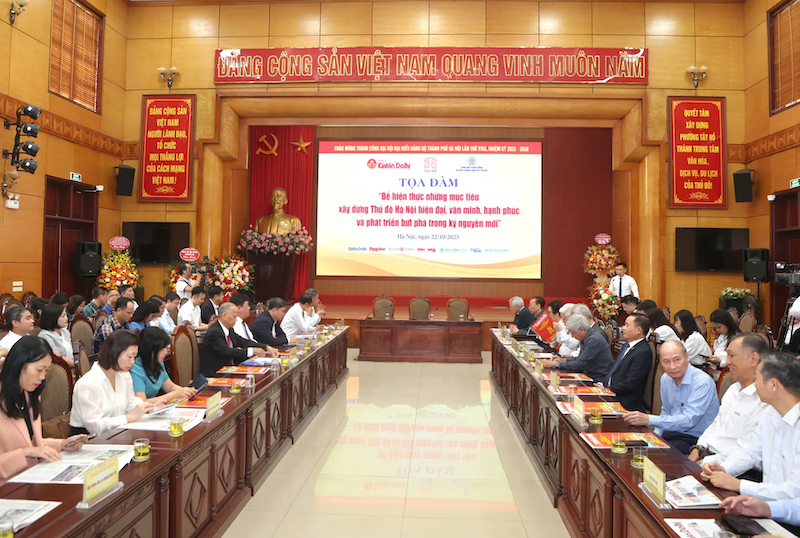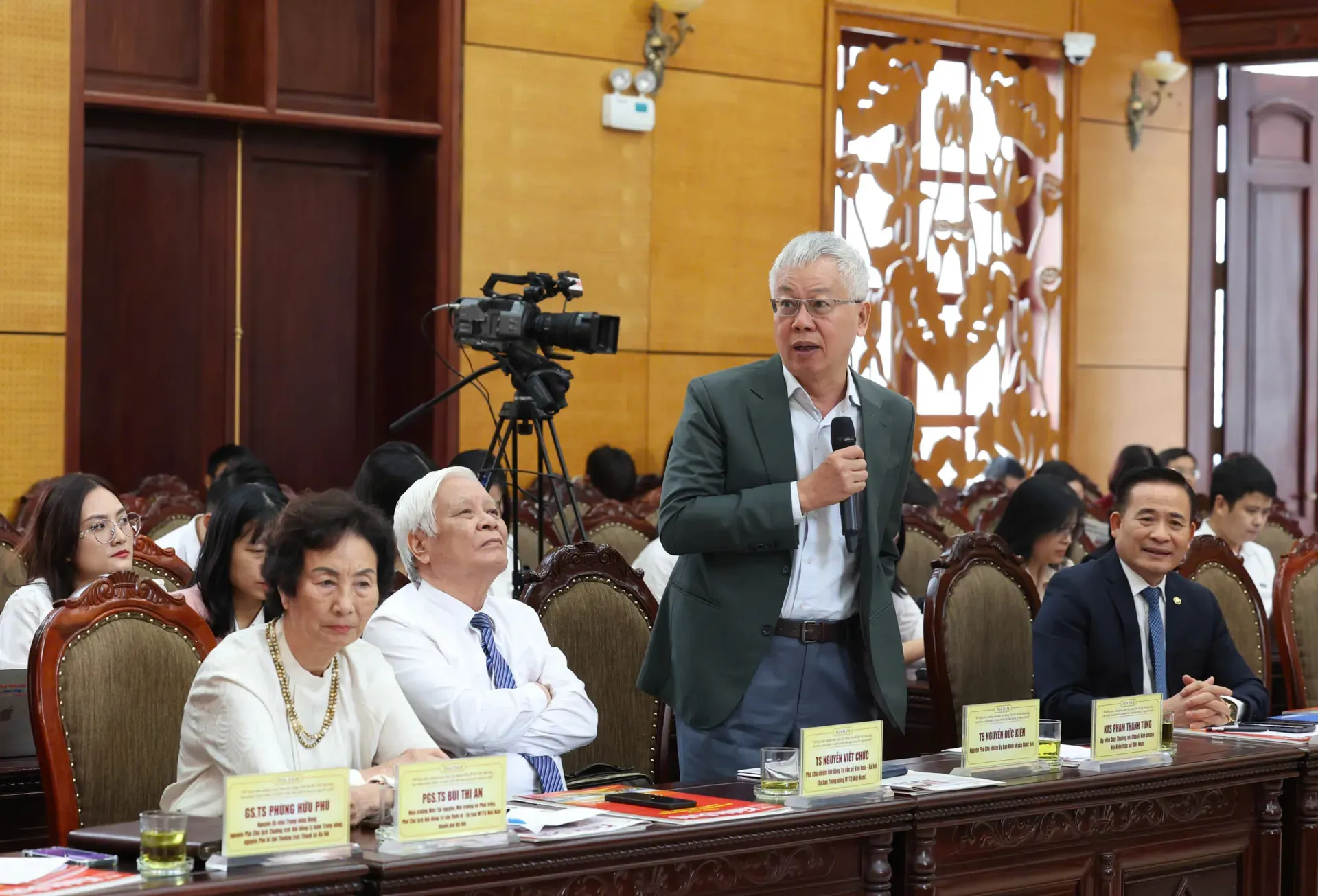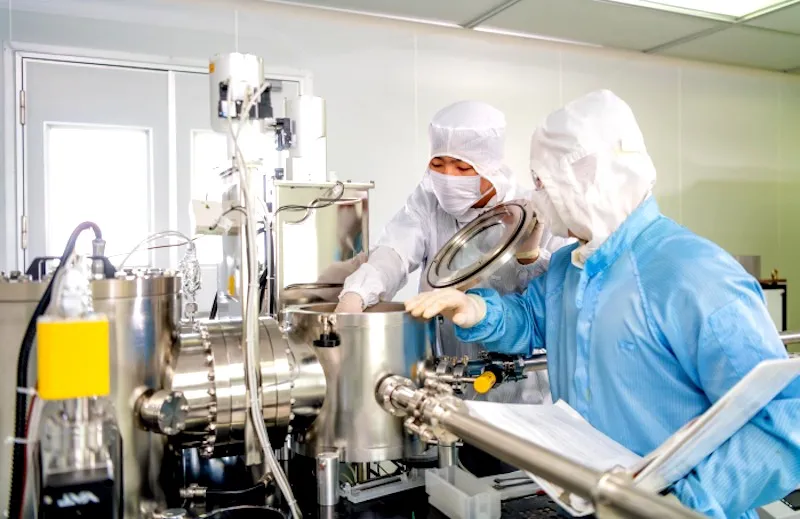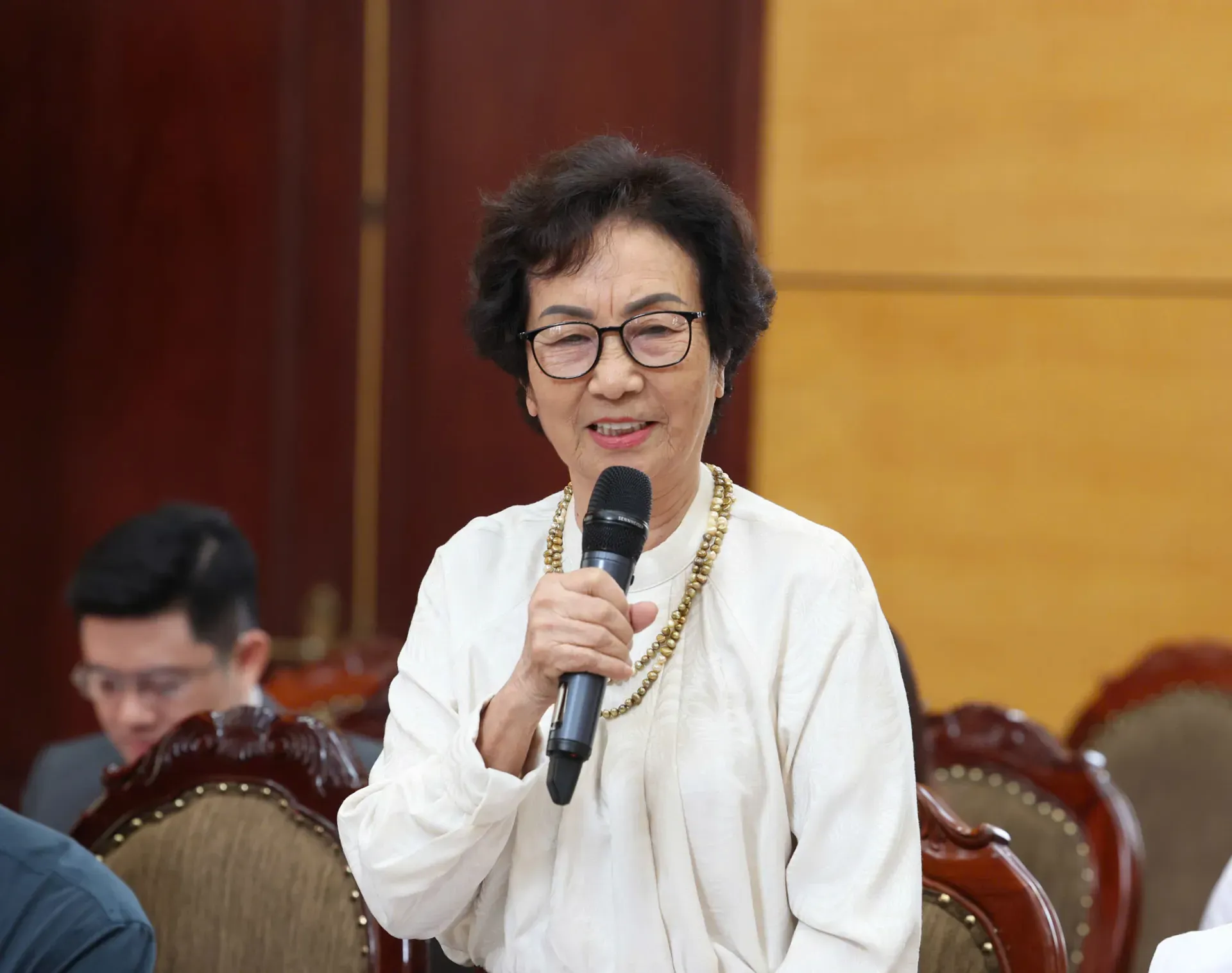Hanoi urged to create investment fund and policy breakthroughs for innovation
Hanoi needs special financial mechanisms, dedicated investment funds and flexible governance models to drive digital transformation, innovation and social housing as these are the key pillars for a modern, happy and competitive capital.
Hanoi needs a financial mechanism and an investment fund dedicated to accelerating digital transformation, fostering innovation and developing high-tech industrial zones, which are considered key growth drivers for the capital.
The proposal was raised at a seminar held by Kinh te & Do thi (Economic & Urban) Newspaper today (October 22) to discuss the city’s strategies to transform into a modern, civilized and happy capital following the success of the 18th Party Congress of the Hanoi Party Committee.

An overview of the seminar held on October 22. Photos: Thanh Hai/The Hanoi Times
According to Nguyen Duc Kien, former Vice Chairman of the National Assembly’s Economic Committee, recent global political and economic shifts show that Hanoi needs flexible and modern policies instead of traditional approaches to adapt to rapid changes.
“Hanoi has rightly identified the digital economy, transformation and science-technology as new growth engines," he said. “Digital transformation is no longer just about using computers or building e-government systems. It must begin in businesses to raise productivity and growth quality.”
Kien cited an example of a textile factory that once required 3,500 workers but now operates with only 120–130 skilled employees. Machines can collect real-time data, but access to such data comes at a cost, making digital transformation a high-risk and capital-intensive process.
He added that about 97% of startups fail globally while the remaining 3% generate enough value to offset the losses. “That level of risk tolerance is essential for Hanoi to build a true innovation incubator,” said Kien.
The expert proposed creating a specialized investment fund to support enterprises in applying technology and adopting digital solutions.
“Unlike the state budget, which must follow strict efficiency rules, such a fund should operate flexibly and accept calculated risks to encourage innovation,” he noted.

Nguyen Duc Kien, former Vice Chairman of the National Assembly’s Economic Committee.
Dr. Nguyen Minh Phong, former Head of the Economic Research Department at the Hanoi Institute for Socio-Economic Development Studies, said that Hanoi needs to complete its legal framework, mechanisms and policies and make urban planning transparent through public information channels.
He said the city must be consistent and coordinated while implementing smart city, e-government, digital transformation and IT application programs.
“The startup ecosystem should be strengthened, innovation promoted and Hanoi’s PCI and PAR Index rankings improved. Barriers in production, business and administrative procedures must be removed to modernize the governance system,” said Phong.
The specialist recommended encouraging private enterprises to innovate, upgrade technology, improve workforce quality, expand markets and develop large, high-tech corporations capable of regional and global competition.
For specific policies, he said digital economic growth must rely on integrated infrastructure, big data and artificial intelligence, connecting national databases, expanding public internet access, modernizing urban infrastructure and advancing digital, 5G, AI, clean energy and environmental technologies.
“Overall, Hanoi should aim to become a creative city and lead the country in new production capacity, green transformation and innovation with the economy being shifted toward depth, modernization, productivity and competitiveness,” he said.

Scientific research at the laboratory of the Nano and Energy Center at the University of Science, Hanoi. Photo courtesy of the university
Hanoi also needs breakthrough policies to become a hub for semiconductors, AI, precision engineering, electronics, biotechnology and high-tech agriculture, while joining regional supply chains, developing supporting industries and attracting foreign investment in innovation centers and high-tech zones, he added.
Telecommunications, digital infrastructure, data centers, digital services, logistics and smart tourism linked with digital transformation should be priorities, Phong said.
Attracting high-quality human resources
Promoting digital transformation and innovation must go hand in hand with attracting skilled human resources.
According to Kien, Hanoi should create special mechanisms to develop industrial clusters and build social housing for workers.
The city should establish dedicated parks for tech startups, applying a “leasing rather than allocating” land model. The government can clear land and build infrastructure, then lease it to businesses while treating social housing as a “strategic asset” to attract and retain talent.
“This approach helps Hanoi attract investment while maintaining control over land resources. This model has been successfully applied in many countries,” he said.
Kien stressed that in a fast-changing global landscape, Hanoi must adopt new economic thinking, create special investment tools and apply flexible governance.

Bui Thi An, Director of the Institute for Natural Resources, Environment and Community Development.
Bui Thi An, Director of the Institute for Natural Resources, Environment and Community Development, said that the city’s development strategy must place science, innovation and people at the center.
“Hanoi aims to be economically strong while ensuring genuine happiness. The city must regard humans and innovation as the cultural and economic core of its development,” she said.
The 18th Party Congress of Hanoi for the 2025–2030 term reaffirmed the city’s political will to lead the Red River Delta and drive national development in line with the Politburo’s Resolution 15, she added.
According to An, the city has turned this determination into practical actions, including resolutions on science and technology, pilot policies that accept innovation risks and projects supporting social housing.
“These are not just broad visions but concrete actions assigning clear responsibilities, especially to local leaders – a breakthrough in management thinking,” she said.








